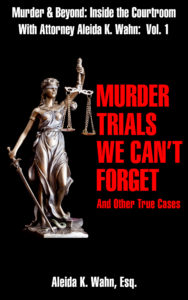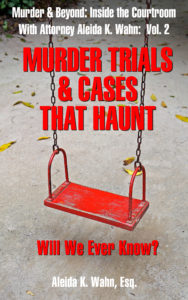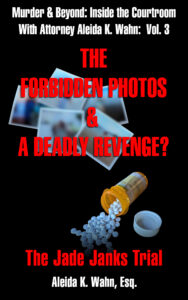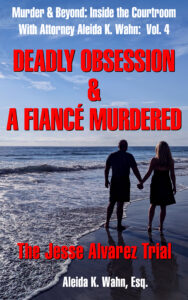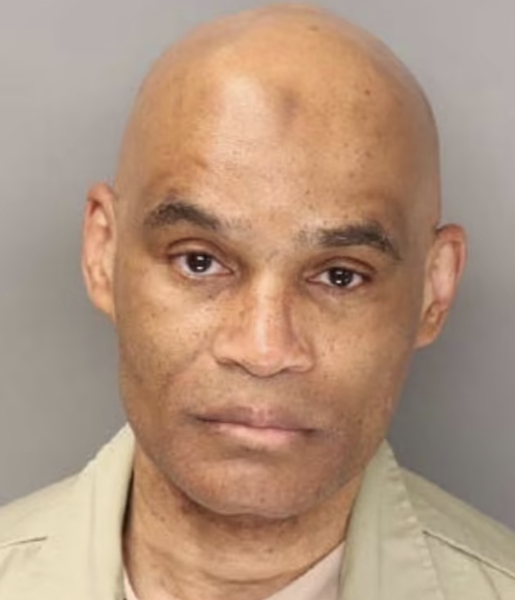
Alvin Quarles terrorized the San Diego community in the 1980’s becoming known as the “Bolder-Than-Most-Rapist” for his brazen attacks on over a dozen women. Breaking into homes, raping, and sexually assaulting women at knifepoint and gunpoint, he became so emboldened he even forced husbands and boyfriends to watch. His horrific run came to an end when he was arrested in 1988, and charged with 62 felony counts, which included rape, burglary, robbery, and solicitation of murder as he was seeking to have his victims killed.
In 1989, Quarles took a plea bargain and was sentenced to 50 years in prison. The women were unaware of any plea discussions, and only learned of the agreement when they were shepherded into a room and presented with the terms as a fait accompli. When asked how long Quarles would truly serve, the prosecutor told them “50 years is 50 years,” and there would be no possibility of parole. Upset they would not get their day in court, they consoled themselves with the belief that Quarles would be behind bars for decades, and they could work on healing their lives. Never could they have imagined the case would become never-ending, still consuming their lives 35 years later.
In 2013, Quarles was set for early release after serving only half his sentence. Cynthia Medina, who was just 20 years old in 1987 when Quarles broke into her motel room and raped her while threatening her and her boyfriend with a knife and gun, was watching television one day and learned prisoners were being granted early release. Shocked, she contacted the prison and was sent a letter indeed confirming her worst fear. Quarles was to be released on November 16, 2013. No one had told the victims of the pending release, even though the Victim’s Bill of Rights of 2008 (Marsy’s Law) required notice. Had Cynthia not seen the television story, she would have been left unaware.
Outraged, Cynthia took the story to 10 News and then the San Diego Union Tribune picked up the story. Mary Taylor, another victim of Quarles who will never forget the night she awoke to find Quarles standing in her bedroom holding a large knife before he raped her, read the story, and immediately contacted the San Diego County District Attorney’s Office. The office was unaware of the pending release. Cynthia and Mary joined forces, and their journey of advocacy, which would span over 10 years, began.
They contacted famed attorney Gloria Allred, who took the case, and drove down to San Diego. Holding a press conference on the courthouse steps, she called for truth in sentencing. The district attorney then filed a petition seeking to have Quarles designated as a sexually violent predator and civilly committed to a state hospital for treatment. At the time, a person could be designated as a sexually violent predator (SVP) if they were convicted of a sexually violent offense against two or more victims (the law has since been changed to make it one or more victims) and are diagnosed with a mental disorder which makes it likely that person will commit a new sexually violent act. A trial was set for July 22, 2014, and Cynthia and Mary were prepared to testify, but on the eve of the trial, Quarles stipulated to being a sexually violent predator. He was then sent to Coalinga State Hospital for treatment.
In 2016, Quarles petitioned for conditional release where he would be sent back into the community under supervision while continuing sex offender treatment. In 2018, San Diego Superior Court Judge David Gill ordered Quarles conditional release even though his psychologist said he had not finished the treatment and was not ready for release. Mary, opposing the release, spoke at the hearing, saying the night she was raped had happened 30 years before, but she could still remember and feel like it was last night. Her life, she said, had been haunted for 30 years.
Quarles was to be released to a home in Jacumba Hot Springs under the supervision of Liberty Healthcare. But when the housing fell through, the district attorney filed for reconsideration and a new psychological evaluation was ordered. Judge Gill closed the courtroom for the March 20, 2019, hearing, and the subsequent July 2019 trial at the request of Quarles’ public defender who cited state and federal law protecting the confidentiality of Quarles’ medical and psychological records.
Cynthia, Mary, and the other women had no idea what was happening behind closed doors. Angry and frustrated at being locked out of the court hearings, a citizens’ group, Your Voice Has Power, was formed by victim advocate Terri Larson. They protested on the courthouse steps and placed tape over their mouths with the words, “Don’t silence me.” They also held signs that read, “Closed doors won’t shut us up.”
The closed hearings also prompted Senator Patricia Bates to seek new legislation in partnership with San Diego County District Attorney Summer Stephan to require court proceedings for Sexually Violent Predators to be kept open to the public. This, however, is not a new issue. The Fourth Appellate Court in People v. Dixon (2007), addressed the matter, stating the public has a first amendment right to access so the party seeking closure must offer a compelling interest that cannot be achieved through less restrictive means. Although recognizing psychological reports are confidential, the Court said the defendant’s convictions were a matter of public concern and that an SVP has a lesser expectation of privacy in his psychological records. They opined it was not entirely clear whether some access would be appropriate, provided the trial court took precautions to protect confidential information. In the end, they left it up to the discretion of the trial judge and found the matter was best left to the legislature.
On July 29, 2019, Judge Gill again ordered Quarles’ conditional release. Mary went on camera with NBC, and said, “The key to survival is regaining your power. And the courts have made it very, very hard…but I’m still gonna fight what I can fight.”
The district attorney appealed Judge Gill’s order of release and on February 24, 2020, the Fourth Appellate Court overturned Judge Gill’s decision, finding he had applied an incorrect legal standard. He used the least restrictive setting in which Quarles could be released, whereas the Appellate Court found that there was no case law requiring a court to find the least restrictive setting. The Appellate Court went on to state, “Quarles is a serial rapist whose crimes were shockingly brutal and destructive. If he fails after he is conditionally released, considering his past, we shudder to contemplate the consequences of such failure.”
In March of 2020, San Diego courts shutdown due to the COVID pandemic, and even upon their reopening, Quarles case did not return to court. Finally, in 2023, Quarles filed for conditional release, and on January 10, 2024, the matter came for hearing. Once again, the courtroom was closed when the psychological report was discussed. However, the courtroom was opened for the testimony of psychologist Dr. Katherine Longwell, who testified virtually from her office in Piedmont in the Oakland Hills. Quarles, now aged 61, also appeared virtually, his head shaved and clad in tan shirt and pants. Sitting unmovable at a table, he looked like a stone statue. Cynthia, who was already shaking badly before the court began, could not stay for long after seeing Quarles.
San Diego Public Defender, Solomon Chang, told Judge Gill Quarles “represents a success story under the SVP Act,” that he has completed the program, feels great remorse, and is a changed man. Chang said four experts evaluated Quarles and they all agreed he was ready for conditional release. Solomon stated the next step was treatment in the community and Quarles no longer posed a danger.
Dr. Longwell testified she evaluated Quarles in 2020, 2021, and 2022, finding he was not ready for release. In 2020, he had not made adequate progress. In 2021, it was not safe yet to release. In 2022, he was moving close, but was not quite ready. However, in 2023, she found he had completed all four modules of treatment and was ready to be moved to the final stage, which was treatment in the community with strict supervision, including electronic monitoring, through the Conditional Release Program (CONREP) and Liberty Healthcare. She stated in doing 100 evaluations, she had only recommended release five times. Dr. Longwell said Quarles was remorseful and had learned mechanism to not reoffend.
Once she had concluded her testimony, deputy district attorney Zachary Wallace stood to give his closing argument. He said the SVP laws have been challenged as double jeopardy, but they survive because the SVP program is deemed treatment. Judge Gill then jumped in to assure, “This is not punitive.” Wallace addressed the victims, saying they received a life sentence of pain and suffering. The district attorney’s office understood the seriousness of the case so when Dr. Longwell said Quarles was ready for release, they asked the court to appoint another psychologist to also evaluate Quarles. The psychologist agreed Quarles was ready for release. They then hired an independent doctor, who also said he was ready. Wallace noted the public defender too hired an independent doctor, who also agreed. Wallace emphasized the work the district attorney had given to the case, and since four doctors and their bosses said Quarles was ready, the district attorney did not oppose the release.
It was then Solomon Chang’s turn, who said he wanted to talk about Quarles. He said Quarles was a success story, although he was not diminishing his acts. It was a success story because it is what “we want the SVP law to do.” Quarles never gave up and truly tried to understand how his victims felt. He changed when he found out his own sister had been raped 40 years ago. His reoffending is zero, proclaimed Chang, causing Mary who sat in front of me to flinch and Terri Larson to practically stand up in protest. Chang finished by saying he understands how difficult it has been for the victims, that it’s deeply personal, but if there is some level of comfort, it is that Quarles is not the same person he was 10 years ago.
Judge Gill then said this is difficult and presents challenges, but he is convinced by the evidence presented Quarles is a suitable candidate for release to CONREP. He said he personally visits the placements and will visit this time as well. He will not tolerate any vigilante actions, he warned. He then granted the conditional release.
Judge Gill said the next step will be finding a place for Quarles to live. Liberty Healthcare will begin the search. Gill set a review hearing for February 16, 2024, to discuss the status. Historically, SVP placement has always been an issue as public outcry is fierce. No community wants an SVP placed in their midst. Some counties have now turned to transient release, allowing the person to be free without stated housing. Mary and Cynthia want the public to be aware this is an option. However, Judge Gill said he is very reluctant to do this, but ultimately can do so if it is the only avenue because this is not punitive.
Mary and Cynthia had expected Quarles to be released, but this never-ending case has caused them great suffering. They vow to continue their advocacy. They want the law to be changed so victims in an SVP case are allowed to hear all testimony, including psychological reports. They also want SVP housing to be established, perhaps a trailer on prison grounds as has been done in times past or a specific area built. Yet they are grateful for better victim communication than what they experienced in 1989, and also for the SVP law itself. Without it, Quarles would have been released outright in 2013.
About Aleida K. Wahn, Esq.

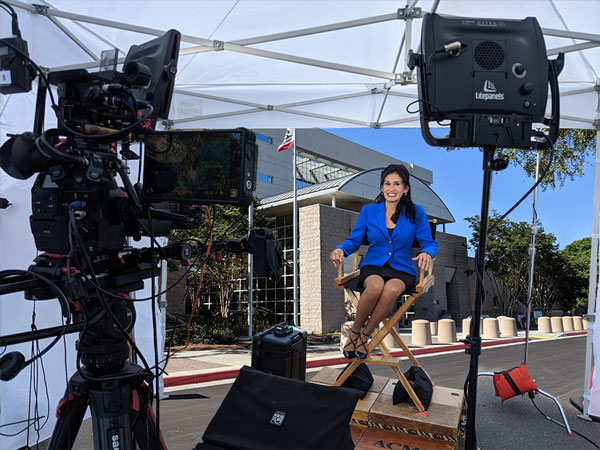
I am an attorney, award-winning true crime writer, and legal analyst of criminal cases. I cover criminal trials and write stories and books about compelling, gripping, and unforgettable cases that impact our world. I take you into the courtroom in high-profile murder trials, rape cases, crimes of passion, cases involving mental illness, deviant behavior, and more. I have a deep passion for true crime, criminal law, and all aspects of the criminal justice system. I have appeared as an expert on true crime shows, including “48 Hours,” “Snapped,” "Peacock TV's Tik Tok Star Murders," and “The Dead Files,” and provided legal analysis on high-profile criminal trials on Court TV, the Law & Crime Trial Network, Fox 5 News, ABC 10 News, and KUSI News. I also create and host shows with the Del Mar Television Producers Group, addressing criminal justice and social issues in recent criminal trials.
I provided my insight and legal analysis on Court TV and the Law & Crime Trial Network of the high-profile trial of former NFL star Kellen Winslow Jr. It was a trial that captured the nation as the heralded ex-football star with fame, fortune, and a famous name stood accused of multiple rapes and other sex crimes involving five women. As the trial delved into shocking facts, complicated legal issues, and unexpected twists and turns, I was there for every minute. After the trial, I wrote a book on the case, going behind the headlines to share the extraordinary details of what happened inside the courtroom. Judging Winslow Jr.: From NFL Star to Serial Rapist? Inside the Shocking Rape Trial of Kellen Boswell Winslow II is now available on Amazon.
I am passionate about telling true crime stories, as these penetrating stories have the power to move us all, while highlighting societal issues which need to be addressed. I have personally seen the human devastation which is present in each trial and believe there is a lesson to be learned in every single case. It is through awareness and examining critical issues society can effect change and even make new laws. To learn more, please visit: https://www.aleidalaw.com.
Read about the gripping and unforgettable trials that I have covered in my latest books:


